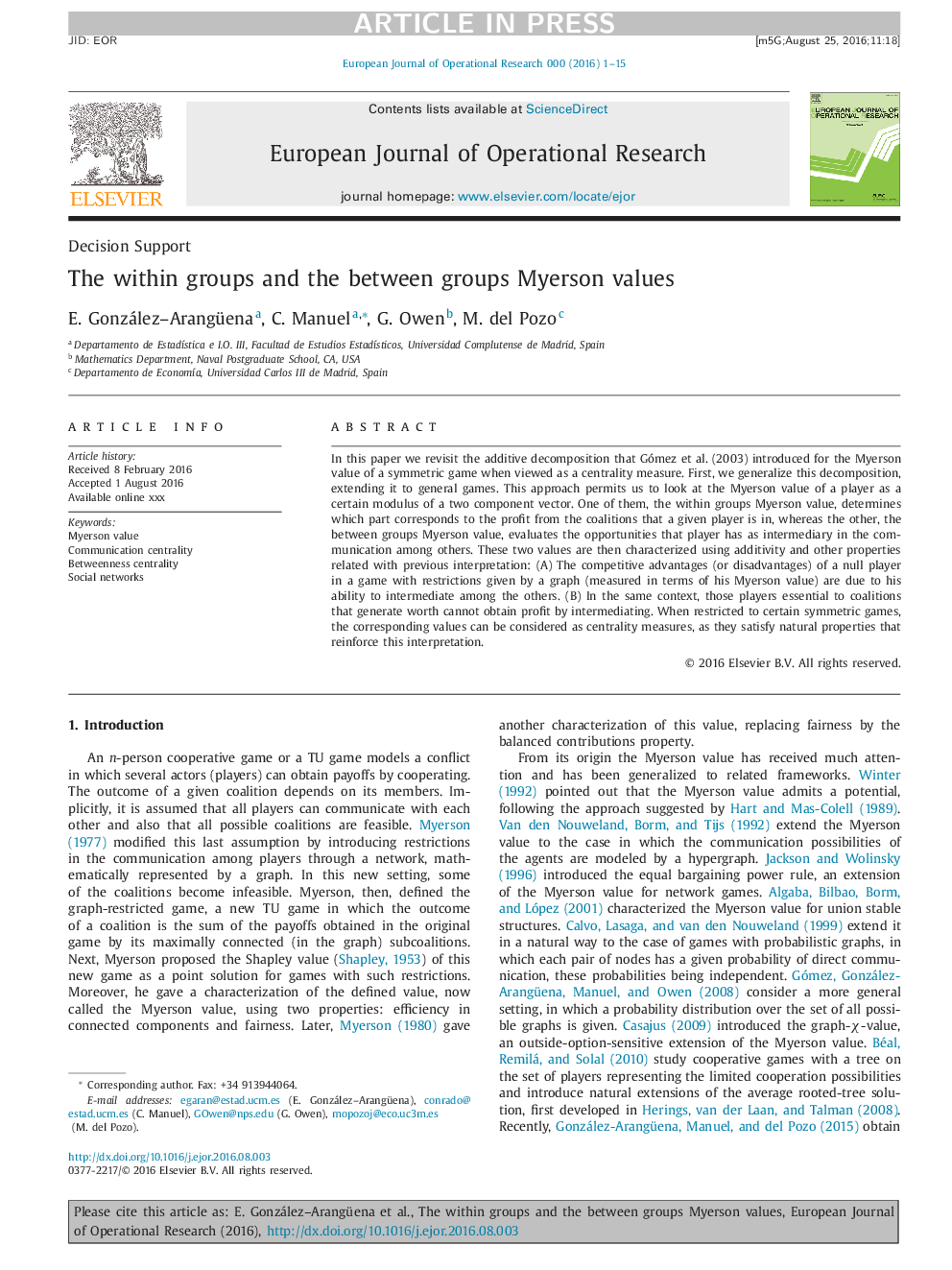| Article ID | Journal | Published Year | Pages | File Type |
|---|---|---|---|---|
| 4960067 | European Journal of Operational Research | 2017 | 15 Pages |
Abstract
In this paper we revisit the additive decomposition that Gómez et al. (2003) introduced for the Myerson value of a symmetric game when viewed as a centrality measure. First, we generalize this decomposition, extending it to general games. This approach permits us to look at the Myerson value of a player as a certain modulus of a two component vector. One of them, the within groups Myerson value, determines which part corresponds to the profit from the coalitions that a given player is in, whereas the other, the between groups Myerson value, evaluates the opportunities that player has as intermediary in the communication among others. These two values are then characterized using additivity and other properties related with previous interpretation: (A) The competitive advantages (or disadvantages) of a null player in a game with restrictions given by a graph (measured in terms of his Myerson value) are due to his ability to intermediate among the others. (B) In the same context, those players essential to coalitions that generate worth cannot obtain profit by intermediating. When restricted to certain symmetric games, the corresponding values can be considered as centrality measures, as they satisfy natural properties that reinforce this interpretation.
Related Topics
Physical Sciences and Engineering
Computer Science
Computer Science (General)
Authors
E. González-Arangüena, C. Manuel, G. Owen, M. del Pozo,
